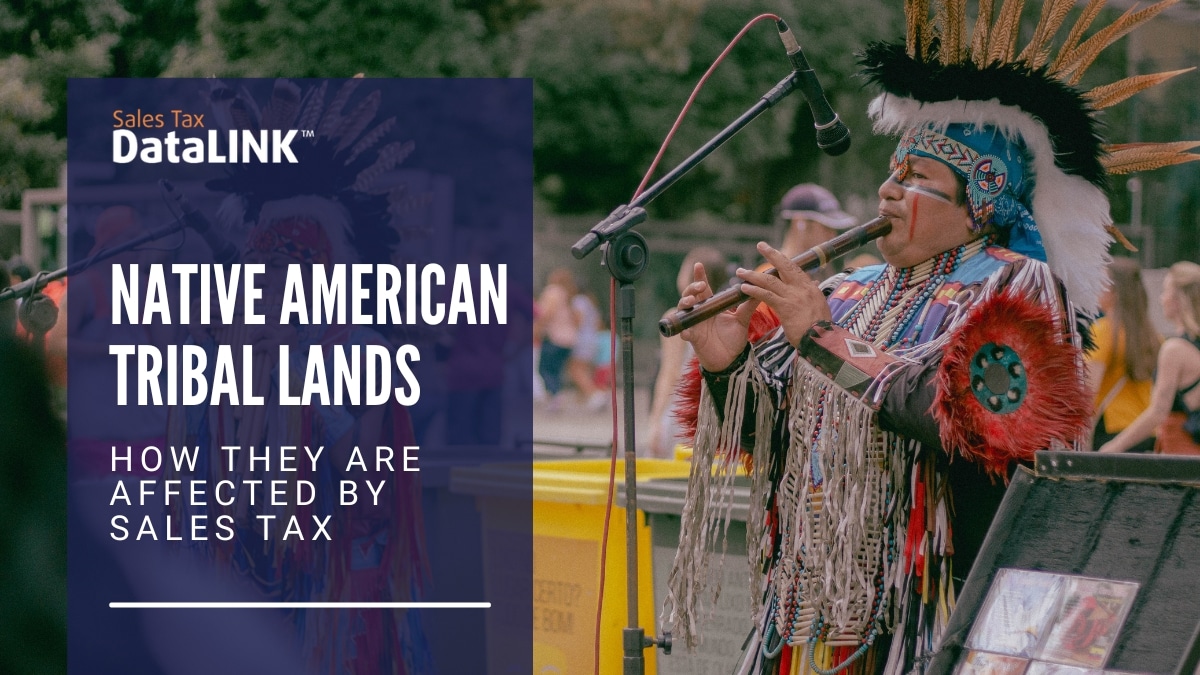Sales Tax and Native Americans – A Complicated Matter
Sales tax is complicated, and one area in which it has gotten more complicated is sales on Native American tribal lands. Of course, the specifics depend on the jurisdiction. One of the reasons sales tax is so complicated in the United States is that there are thousands of different tax jurisdictions. Not only does every state have a different set of rules, but cities and counties often also have different rules.
Naturally, there is not one set of rules that covers all transactions involving Native Americans. There is a general presumption that Native Americans on tribal lands are not subject to sales tax. But the specifics vary.
So let’s consider some examples.
- If you sell an item to a member of the tribal roll of a specific Native American reservation in Washington State, or to a company with only Native American partners on such a reservation, you do not have to collect sales tax, but you must record the name and tribal affiliation of the customer. The specific tribes covered by this law are listed on the Washington State website.
- North Dakota has a similar law, but the Standing Rock Sioux Tribe reservation is an exception. Native Americans who receive goods on a reservation but then take the goods away and use them elsewhere must pay use tax at that time. Also, while non-Native American customers can buy goods on reservations without paying sales tax, they must pay use tax.
- In Louisiana, goods delivered to an enrolled tribal member must be delivered in the vendors’ vehicle or by a common carrier. Otherwise, they are subject to sales tax. People performing services on a reservation, but who are not members of the tribal roll of that reservation, can’t buy materials used for those services tax-free.
- In Arizona, every element of the transaction, from signing a contract to delivering the goods, must take place on the reservation in order to avoid sales tax. Specifically, “solicitation of the order, the delivery of the goods, and the payment for the goods takes place on or from the reservation.” However, tribes may tax everyone, including non-Native Americans and nonaffiliated Native Americans, on their own lands. Businesses located on reservations that have sales to affiliated Native Americans (people on the reservations tribal rolls) and to others, must keep the books for the two groups separately.
Broadly speaking, Native Americans do not have to collect or pay sales tax on their own reservations, except if their tribe collects sales tax. But sales tax compliance is not identical on all Native American lands.
What about remote sellers?
A remote seller providing goods and services to an enrolled tribal member nod delivering those goods and services to the reservation will not have to collect sales tax. They may have to get a tax exemption certificate or collect and keep information about their customers.
Unless the tribe decides to collect sales tax on their reservation, in which case the seller will have to collect and remit sales tax according to the rules and regulations determined by that particular tribe.
However, in spite of tribal requests, the Supreme Court did not actually clarify how the Wayfair decision allowing states to collect sales tax on e-commerce transactions would apply to tribal lands.
A manufacturer selling an item to a tribal member in Arizona would have to be prepared to say that payment took place on the reservation, however. A transaction through a credit card or bank not located on the reservation might make that complicated. Delivery by common carrier in Louisiana shouldn’t be too challenging, since UPS and FedEx are common carriers. However, a streaming service like Netflix isn’t yet considered a common carrier. Is it the vendor’s vehicle?
What about e-commerce companies serving Washington State? Should they make sure to ask for tribal affiliation upon checkout, and if so, can they be expected to recognize that the Skokomish are on the list of registered tribes?
Some of these questions will probably eventually be settled in court.
In the meantime…
Sales Tax DataLINK offers complete software, services, and advisory for sales tax compliance. However, complicated the issue, we’re here to help.
Call 479-715-4275 to learn more.




